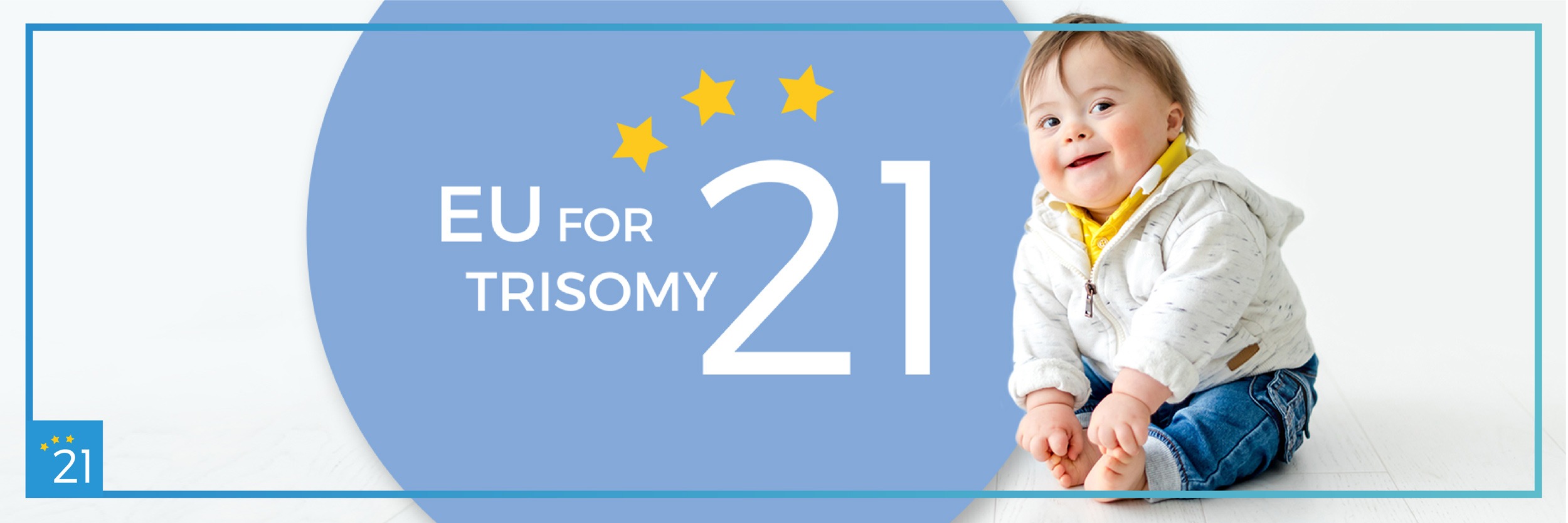
Čo je EÚ pre Trizomy 21?
Platforma pre spoluprácu združení, občanov a politikov, ktorí spolupracujú pri oslave Svetového dňa Downovho syndrómu s cieľom zviditeľniť mentálne postihnutie všeobecne a ľudí s trizómiou 21 zvlášť (najčastejšie mentálne postihnutie genetického pôvodu, nazývané aj Downov syndróm ).
EU for Trisomy 21 je sieť rôznych organizácií a iniciatív od rodičov z celej Európy, ktoré sa snažia zlepšiť životy ľudí s Downovým syndrómom na miestnej úrovni. Dúfame, že tieto organizácie prepojíme, aby sme podnietili spoluprácu a výmenu osvedčených postupov a spojili ich pod záštitou EÚ pre trizómiu 21, aby sme mohli spoločne hovoriť za trizómiu 21 v inštitúciách EÚ.
Európska únia má právnu kompetenciu na tvorbu legislatívy, ktorá rieši problémy týkajúce sa ľudí so zdravotným postihnutím: zdravie, zamestnanosť, diskriminácia, vzdelanie, ľudské práva... Napriek tomu rok čo rok rozpočty a európske projekty týkajúce sa ľudí s mentálnym postihnutím klesajú alebo stagnujú.
Cieľom našich aliancií je zlepšiť Autonómia, Viditeľnosť, Zdravie a Rovnaké zaobchádzanie ľudí s trizómiou 21 v celej spoločnosti a tlačiť na inštitúcie EÚ, aby podporovali tých najzraniteľnejších spomedzi nás.
Čo robí EÚ pre trizómiu 21 chcieť?
Chceme, aby sa potreby ľudí s mentálnym postihnutím stali prioritou európskeho programu s cieľom zaručiť skutočnú rovnosť medzi občanmi.
Viditeľnosť
Ľudia so zdravotným postihnutím nie sú prítomní v politickom prostredí, nie sú prítomní na trhu práce ani v médiách. Ak ľudia so zdravotným postihnutím nie sú v spoločnosti viditeľní, je nemožné vykonať potrebné zmeny.
Nediskriminácia
Antidiskriminačné právne predpisy EÚ prešli v posledných rokoch dlhou cestou pre rôzne menšinové skupiny, s výnimkou osôb so zdravotným postihnutím. Ľudia s mentálnym postihnutím potrebujú určité špeciálne opatrenia, aby sa zabezpečilo, že ich tieto zákony a jurisprudencia chránia, a to nielen teoreticky.
Zdravie
Európska únia musí konať v najlepšom záujme ľudí s mentálnym postihnutím, aby zabezpečila ich právo na „vysokú úroveň ochrany ľudského zdravia“, ako je stanovené v Charte základných práv Európskej únie.
Autonómia
Aby sme zaručili nezávislosť a slobodu voľby pre ľudí s mentálnym postihnutím, musíme podporovať ich autonómiu. Na tento účel musí EÚ podporiť program lekárskeho výskumu s terapeutickými cieľmi a inkluzívnymi inovatívnymi sociálnymi projektmi, ktoré integrujú do spoločnosti ich rozmanitosti.